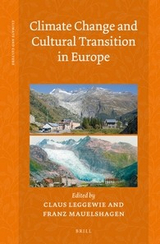
EU climate leadership? Europe’s role in global climate negotiations
Brandi, ClaraExternal Publications (2018)
in: Claus Leggewie / Franz Mauelshagen (eds.), Climate change and cultural transition in Europe, Leiden: Brill, 219-245
ISBN: 978-90-04-35682-5
Information

